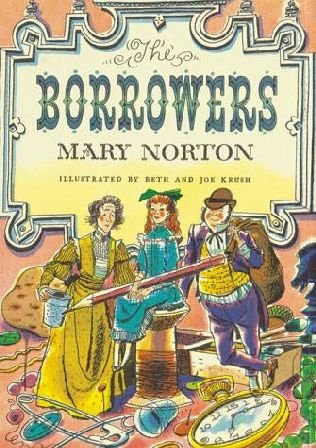I have always been fascinated by dollhouses, especially when I was a child and even now as an adult. They are each like perfect little individual worlds, with their Victorian settees and tea sets, little lamps that light up, and tiny embroidered pillows. Everything seems so much more charming when it is in miniature, and with a dollhouse, you are able to explore the world of another family in a way that you are unable to do when you visit someone else’s home. When I was a child, I used to visit a toy store with a huge display of dollhouses. I would spend as long as my parents would allow peering into the little rooms, delighting in the miniature lace canopies on tiny four-poster beds and Christmas feasts displayed on replica Queen Anne dining tables. As an adult, I have delighted in visiting the Thorne Rooms at the Art Institute of Chicago, an extensive display of miniature rooms created by Mrs. James Ward Thorne (1882-1966). I also discovered and purchased for my niece The Mouse Mansion by Karina Schaapman, which has adorable pictures of miniature rooms created for tiny mouse dolls. These tiny worlds capture my imagination and my help satisfy my voyeuristic desires to explore and understand other people’s private lives.
Similarly, I’ve always said that I enjoy reading because books allow me to explore so many other worlds – each novel is like a world onto itself, and to me, a well-written novel is a well-imagined world that details both people and places without growing tedious in its efforts to describe.
The Borrowers by Mary Beth Norton appeals to my fascination with exploring miniature worlds, tiny secret places within our own large and sometimes frightening world. This classic of children’s fantasy literature is about a miniature race of people called Borrowers who live under the floorboards and between the walls of our houses, constructing their homes out of items that they “borrow” from the human residents. With furniture constructed out of chess pieces and match boxes, or borrowed from a forgotten dollhouse, and postage stamps to decorate their walls, their world will be a fascinating place for those who share my interest in secret places and tiny, cozy homes. Foraging for food from the leftovers on the tea trays and from the pantry upstairs, the Borrowers survive quite nicely without attracting the attention of many residents. If a Borrower is “seen” by a human, however, then they are in great danger.
Norton’s novel is the story of a lonely little boy who discovers and befriends a family of Borrowers, becoming familiar with their miniature world in such a way that no other human has before. He begins to “borrow” items for his new friends and spend happy afternoons reading with them. But although the boy’s friendship is genuine, his relationship with the Borrowers ultimately puts them in danger when the adults begin to notice that so many things have gone missing from around the house.
The Borrowers seems to me to be about the desire to discover other worlds and the particular desire of lonely children to become a part of those other worlds. So many children’s fantasy novels are about the discovery of a secret place, a more fantastic world that allows the characters and the reader to escape the drudgery and the loneliness of the everyday world in which they live. Norton’s novel does this especially well, describing the Borrowers’ home and tactics for moving through the house – climbing up curtains and tunneling under the floorboards – in clever detail. I felt as though I was exploring a fancy dollhouse, an entire world that posed its own set of problems and dangers. I highly recommend this novel to anyone who enjoys discovering and exploring secret places and other worlds, whether they are through a wardrobe door or just underneath the kitchen floorboards.



This website was created with a lot of love, Coke Zero, and tacos by Kumquat Creative.